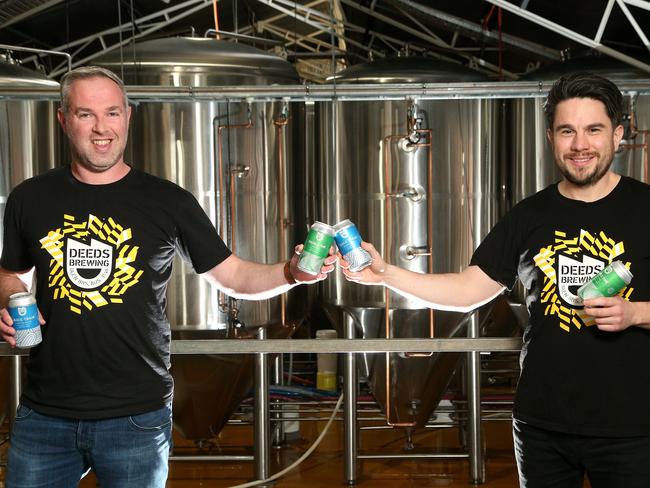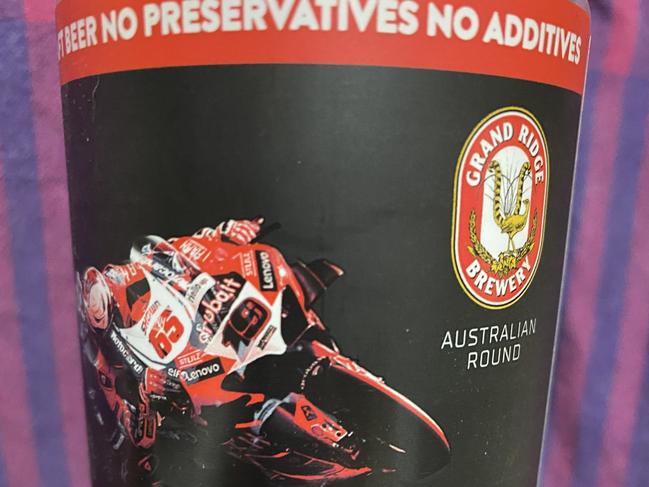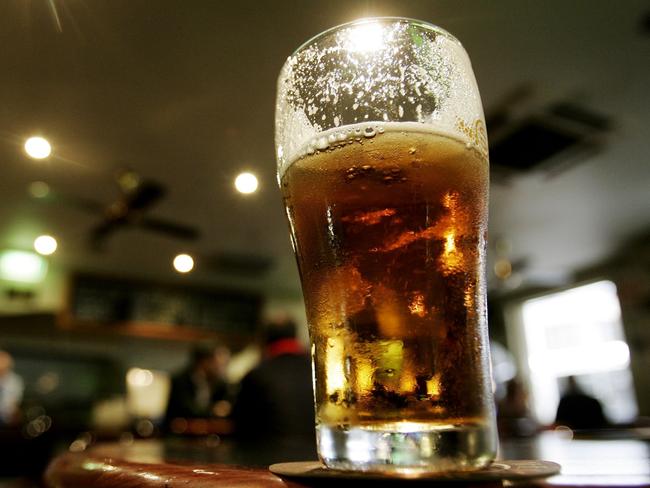‘Facing unprecedented times’: The fight to save beleaguered craft beer industry
Craft beer brewers are being forced to operate “on bare bones”, close doors, merge or enter administration, in “unprecedented times” for the once booming sector. Here’s what’s killing the beer industry.
Victoria
Don't miss out on the headlines from Victoria. Followed categories will be added to My News.
It’s the beverage Australia is most famous for, but our once booming beer manufacturing industry is battling and going bust.
For every collapsed craft brewer that has hit the headlines over the past year — and there have been many — there are scores barely holding on, industry sources say.
Amid a plea for Australians to get on the craft beers to help save the struggling sector, Independent Brewers Association chief Kylie Lethbridge said “many, many” craft breweries were now on their knees.
“They’re either restructuring — and in fact many already have, some as long as 12 months ago — reduced their staff down to bare bones, been put up for sale or simply closed their doors,” Ms Lethbridge said.

Tax debts deferred during the pandemic that now had to be repaid, a rapid 40 to 50 per cent rise in the cost of beer making ingredients and the skyrocketing cost of gas — “which is a big part of the brewing process” — had combined to create “a veritable perfect storm” of conditions which made staying afloat in a cash-strapped society increasingly difficult, she said.
A government that failed to value craft brewers as innovators and valuable small businesses, and appeared blind to the tourism value of breweries as visitor destinations, made it harder still, Ms Lethbridge said.
“We are one of the most highly regulated and taxed manufacturing industries in the world — we sit third highest — our government has never really supported independent brewers,” she said.
“And that tax not only increases once a year, it increases twice a year, which makes it much more challenging.”
Ms Lethbridge said Victorian brewers that had gone into voluntary administration in recent times included Deeds Brewing, Dainton Beer and Bad Shepherd.
“And Deeds has not come out of administration,” she said.
The Glen Iris brewery appointed administrators for its four associated businesses including Deeds Group, Deeds Taproom, Deeds Brewing Company and Future Proof Distilling earlier this year.
Victoria’s oldest independent brewery, Grand Ridge in Mirboo North, also began the process of voluntary administration in March.
Cheltenham’s Bad Shepherd Brewing Co entered voluntary administration in October 2023 as it sought “to facilitate a financial restructuring of the business” while Melbourne-based brewery Hawkers did the same — with $1.7 million of unpaid tax debt — on February 12.
Meanwhile, Kilmore’s Red Lion Brewery and Healesville’s Matilda Bay Brew pub are among those that have quietly closed their doors.


The craft brewery battle is not just limited to Victoria, with brewers going bust, shutting up shop or merging across the country.
Last month it was revealed even bigger beer producers like Mighty Craft were also in trouble. Mighty Craft entered merger talks with Better Beer in a bid to raise capital off the back of that deal but warned if the move didn’t succeed, the outlook for the company was uncertain.
But Ms Lethbridge said the beleaguered craft beer sector was not going down without a fight.
While acknowledging craft beers typically couldn’t match mass-produced, major labels on pub taps for price, she called on Australians who could manage to do so, to buy independent beers when and where they could, and visit craft breweries on weekends.
She said there were many craft breweries “holding on” and trying to survive until summer, when beer demand typically rose significantly.
There was also a shift in the industry, similar to that which occurred in the Australian wine industry some years’ ago, in which breweries were choosing to “consolidate” and join forces, rather than continuing to struggle on alone.
A number of smaller, battling brewers across Australia had recently been bought out by bigger brewers, or were in the process of negotiating sales, Ms Lethbridge said.
“If we are mimicking what happened to wine, there will be a levelling out and then a sustained amount of breweries and then potentially some growth out the other side of it.
“But obviously we don’t have a crystal ball and we have no idea how long inflation and the other issues we are impacted by will last . . . we are facing unprecedented times,” she said.

Many craft breweries were small operations producing less than 700,000 litres a year and operated by families who were at the heart of their communities, Ms Lethbridge said.
“Please support them at the bottle shop, look for the independent seal that shows you’re not supporting Japanese-owned companies or international businesses,” she said.
“Where people can afford it and are able, please support their local brew as best they can, while we try to weather this storm.”


